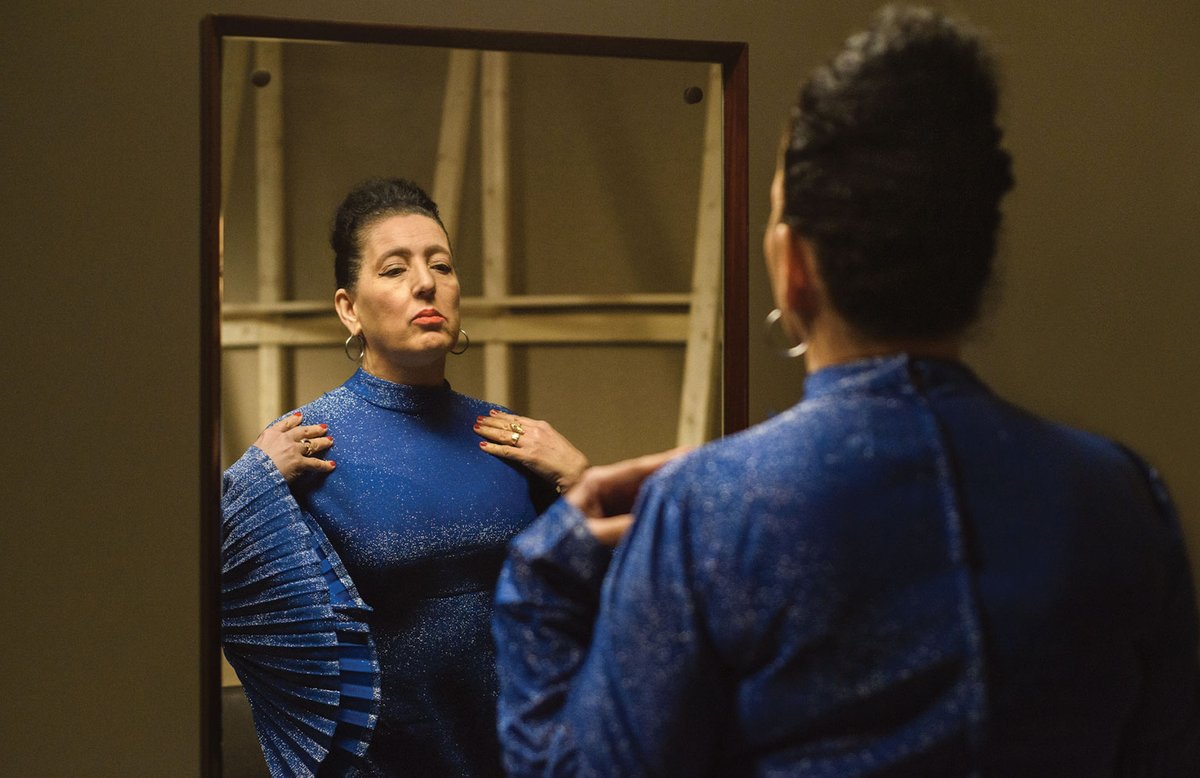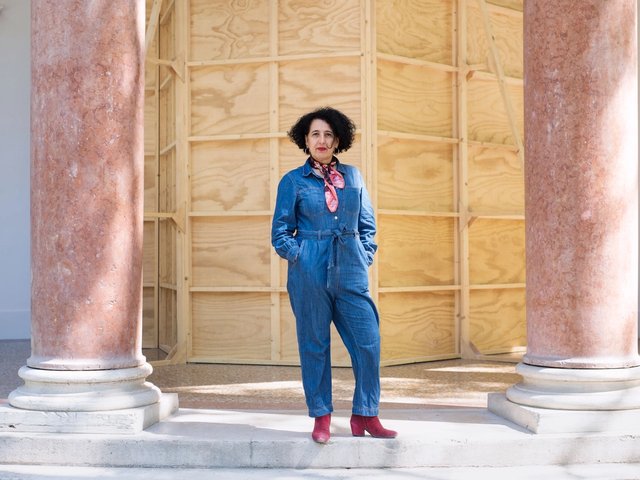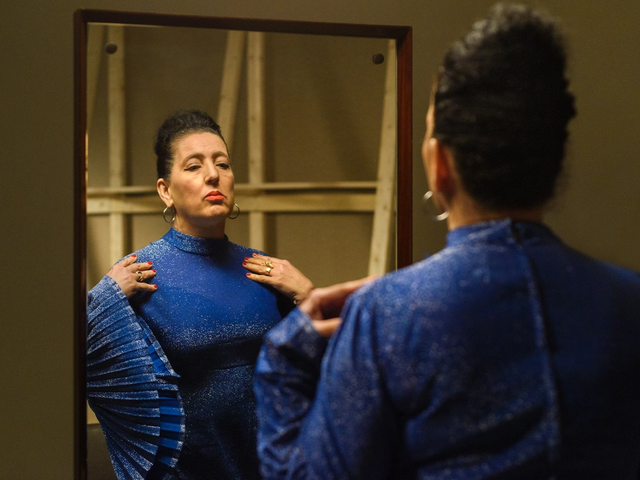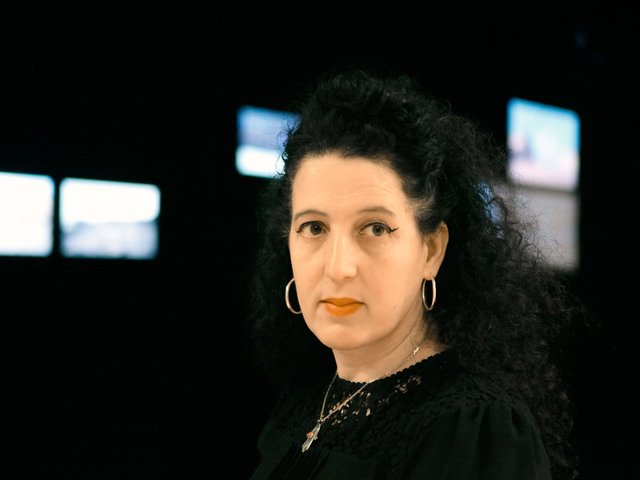Zineb Sedira’s presentation in the French pavilion may touch a raw nerve in France. Her cinematographic installation, Dreams have no titles, focuses on Algerian cinema of the 1960s and 70s and its links to the Italian and French film industries. The subject matter is timely as 2022 is the 60th anniversary of Algeria achieving independence from France. On 5 July 1962, Algeria became a sovereign state after an eight-year war that resulted in the deaths of at least 400,000 Algerians.
Algerian independence is a delicate topic, especially in a French presidential election year. Sedira was also caught up in an ongoing row over her support for Palestine when she was named as France’s representative in 2020. So is she a political artist? “There are artists who are political activists, which I am not,” she says. “But I’d like to think that there is political and personal content in my work and for me, [they] can’t be dissociated. So perhaps political with a small p, rather than a big P.”
Sedira is the first artist of Algerian descent to be selected as the country’s representative. She was born in Paris to Algerian parents and attended Central Saint Martins school of art in London. Cinema has been a lifelong obsession; in the 1960s, her passion for film was sparked by childhood trips to the local picture house in her hometown of Gennevilliers outside Paris. She also researched the history of Algerian film for an exhibition, A Brief Moment, at the Jeu de Paume, Paris, in 2019.
Sedira came across The Battle of Algiers during her postcolonial studies in London as the film was still censored in France in the late 1970s and early 80s
The overarching aim is to focus on the postwar cooperation between France, Italy and Algeria in the postcolonial era, highlighting “the solidarity between the trio of nations”, the artist says. Examples include the Italian-Algerian co-production The Battle of Algiers (1966), financed entirely by Algeria; the Algerian-French political thriller Z (1969) and the Italian-Franco-Algerian film Le Bal (1983). Crucially, Sedira came across The Battle of Algiers during her postcolonial studies in London as the film was still censored in France in the late 1970s and early 80s. “When I arrived in the UK, I discovered my Africanity or Algerianity,” she says.
Sedira visited numerous film archives in Algeria, France and Italy as part of her research. “I knew there was a fairly rich cinema scene in the 1960s, but I didn’t know it was part of Algerian state policy to finance and commission films to non-Algerian filmmakers too,” she says. “Some people have called it propaganda cinema. I don’t think it is; it was a young state that needed to find ways to create its own culture and image, contesting French colonial representations.” The Algerian state was especially keen when the films were politically aligned to anti-imperialism, Sedira adds.
“We also found a film that had disappeared,” says Yasmina Reggad, the co-curator of the French pavilion with Sam Bardaouil and Till Fellrath. That forgotten work is Les Mains Libres made by the Italian director Ennio Lorenzini in 1964. Sedira adds that it was “the first international film collaboration between Algeria and another country”—Italy, again—but after 1966 Les Mains Libres was lost. She eventually found it in a small archive in Rome.
In a film to be shown in the pavilion, the three curators are taking on numerous roles in scenes remade from the historic Algerian co-productions. “I was playing on the aesthetic and structure in cinema in the 1960s in low-budget films, when one would play many roles,” Sedira says. The production will also include members of the crew and Sedira’s son. On a site visit, they all seemed to be relishing their new movie-star status. L'Institut Français is supporting the pavilion.
France
Artist: Zineb Sedira
Organisers: Yasmina Reggad and artReoriented (Sam Bardaouil and Till Fellrath); Institut Français, French Ministry of Europe and Foreign Affairs, and the French Ministry of Culture
Where: Giardini





